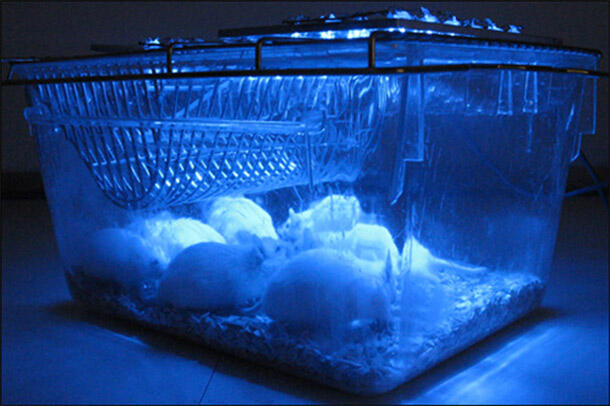Reactivate memories that were doomed never to be remembered? This is indeed the prowess of US researchers Massassuchets Institute of Technology (MIT) have conducted on mice suffering from retrograde amnesia (amnesia concerning events that occurred prior to the start of the condition or trauma) only by stimulating certain specific neurons using a blue light beam.
To achieve this, the researchers first created a (bad) memory in mice by administering painful shocks repeatedly. Then they identified the neurons that were activated when the mouse is reminiscing about this episode.
Once the neurons associated with the memory identified, the authors of the study were administered to the mice a drug called Anisomycin, a compound having the effect of blocking the production of new proteins.
As expected, this molecule had the effect of preventing the synthesis of new proteins within neurons involved in memory. Result: the mice no longer remembered their painful episode, now suffering from retrograde amnesia.
Next, the researchers introduced into these “disabled” neurons a protein having the effect of making the neurons sensitive to blue light. In other words, exposure of these neurons to a blue light was likely to turn them on again.
Once they introduced the protein, the authors of the study exposed the neurons involved in a beam of blue light. This had the effect of restoring the memory of the painful memory in mice.
This has major implications. Indeed, it suggests that in many forms of amnesia, the memories have not disappeared from the brain areas associated with memory: the memories are indeed still stored by the brain, but they can not be remembered.
In other words, the memory is still available, but the brain does not know what “path” to borrow to go back.“Amnesia is a problem of inability to retrieve information” , says neurologist Susumu Tonegawa, director this work, in a statement released by MIT .
Based on this work, the study authors also propose a new model: “We offer a new concept, in which there exists a network of brain cells for each souvenir” , explains Susumu Tonegawa.











